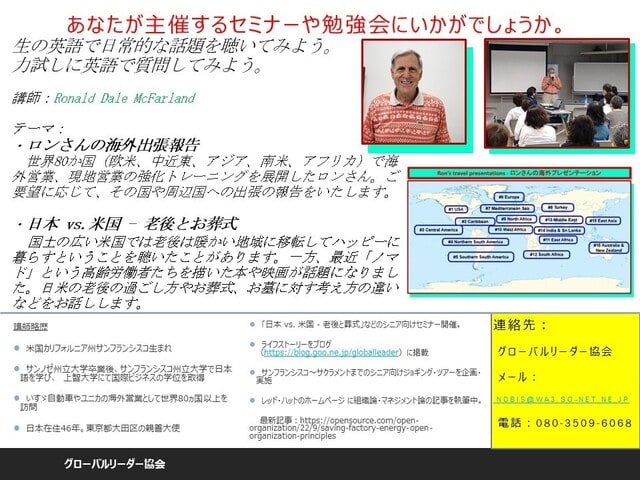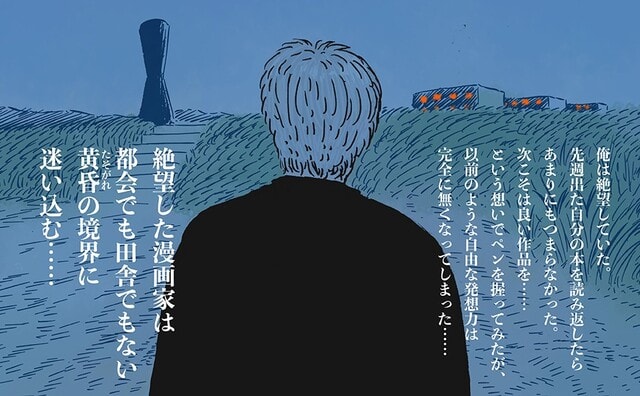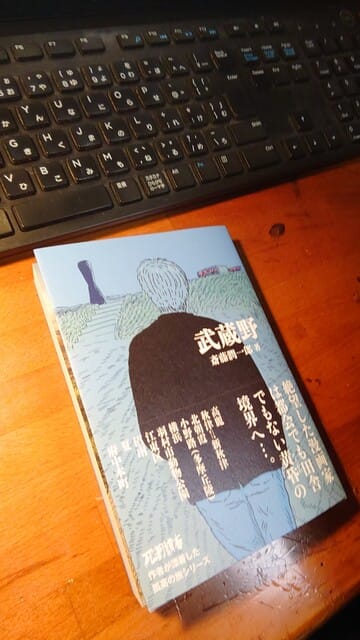Chapter #6: BECOMING AN EMPLOYEE OF A LARGE JAPANESE CORPORATION
日本企業の社員としての生活が始まります。さて、入社までの経緯は?
One of the English students I had was my next-door neighbor’s daughter. The father was to top executive in Isuzu Motors Limited. That was one of the major truck manufacturers in the country. It was one of the three oldest automotive companies in the country along with Toyota and Nissan. During and after World War II, Isuzu decided to devote most of its strength in building and marketing trucks instead of passenger cars, which Toyota and Nissan did. All three produced both cars and trucks, but Isuzu put most of its effort into trucks. The truck industry is very cyclical and is affected by economic shifts, and Isuzu suffered greatly during periods of recession. In order to survive, it had to sell off one of its plants (later to become Hino Motors) and affiliated several times with other manufacturers through product cross badging. Nothing seemed to work until in 1971 General Motors (GM) bought 34% of the company.

The family to got me into Isuzu Motors
With the very different corporate cultures and approaches to business between GM and Isuzu, there were always areas of friction and pro-GM/anti-GM camps within Isuzu Motors. The pro-GM camp was basically saying that Isuzu could not survive without GM, and to prosper, Isuzu needed all the help it could get from GM including management support. The anti-GM camp was saying that Isuzu and GM are equal partners with different strengths and GM need not participate within Isuzu’s management at all. Interestingly, I didn’t know it at the time, but the person that brought me into the company was more in the anti-GM camp. His feeling is that he could build Isuzu into an international organization without GM’s help. Anyway, he was my gateway into the company.
グローバルリーダーとしての第一歩を踏み出しました。
Ronさんのセミナーいかがですか。苦労の多かったRon-sanの青春時代やキャリア形成の話、特に何故日本に来る決断をしたのか、などを聴いてみたいですね。それとRonさんが楽しみにしている出席者と皆さんとのノミニケーション。
皆さんがおやりになっている勉強会などに出張し講演させていただきます。
ただし、Ronさんが住んでいる東京都大田区から日帰りできるところとさせてください。
もっとも台湾でも日帰りは可能ですが。

<仕事に疲れたら『武蔵野』でコトリップ(『武蔵野』リイド社、斎藤潤一郎著)>

日本企業の社員としての生活が始まります。さて、入社までの経緯は?
One of the English students I had was my next-door neighbor’s daughter. The father was to top executive in Isuzu Motors Limited. That was one of the major truck manufacturers in the country. It was one of the three oldest automotive companies in the country along with Toyota and Nissan. During and after World War II, Isuzu decided to devote most of its strength in building and marketing trucks instead of passenger cars, which Toyota and Nissan did. All three produced both cars and trucks, but Isuzu put most of its effort into trucks. The truck industry is very cyclical and is affected by economic shifts, and Isuzu suffered greatly during periods of recession. In order to survive, it had to sell off one of its plants (later to become Hino Motors) and affiliated several times with other manufacturers through product cross badging. Nothing seemed to work until in 1971 General Motors (GM) bought 34% of the company.

The family to got me into Isuzu Motors
With the very different corporate cultures and approaches to business between GM and Isuzu, there were always areas of friction and pro-GM/anti-GM camps within Isuzu Motors. The pro-GM camp was basically saying that Isuzu could not survive without GM, and to prosper, Isuzu needed all the help it could get from GM including management support. The anti-GM camp was saying that Isuzu and GM are equal partners with different strengths and GM need not participate within Isuzu’s management at all. Interestingly, I didn’t know it at the time, but the person that brought me into the company was more in the anti-GM camp. His feeling is that he could build Isuzu into an international organization without GM’s help. Anyway, he was my gateway into the company.
グローバルリーダーとしての第一歩を踏み出しました。
Ronさんのセミナーいかがですか。苦労の多かったRon-sanの青春時代やキャリア形成の話、特に何故日本に来る決断をしたのか、などを聴いてみたいですね。それとRonさんが楽しみにしている出席者と皆さんとのノミニケーション。
皆さんがおやりになっている勉強会などに出張し講演させていただきます。
ただし、Ronさんが住んでいる東京都大田区から日帰りできるところとさせてください。
もっとも台湾でも日帰りは可能ですが。

<仕事に疲れたら『武蔵野』でコトリップ(『武蔵野』リイド社、斎藤潤一郎著)>




















